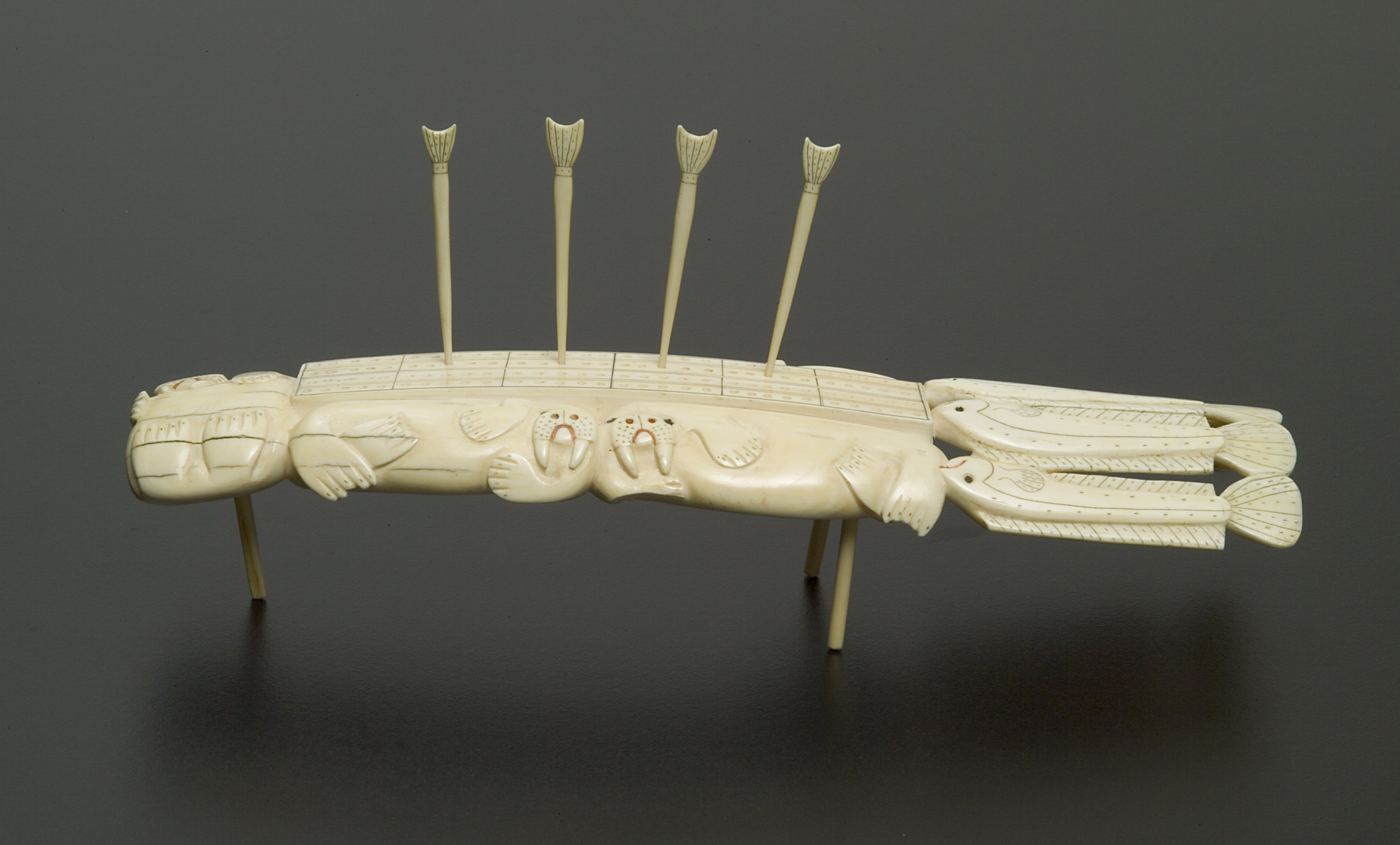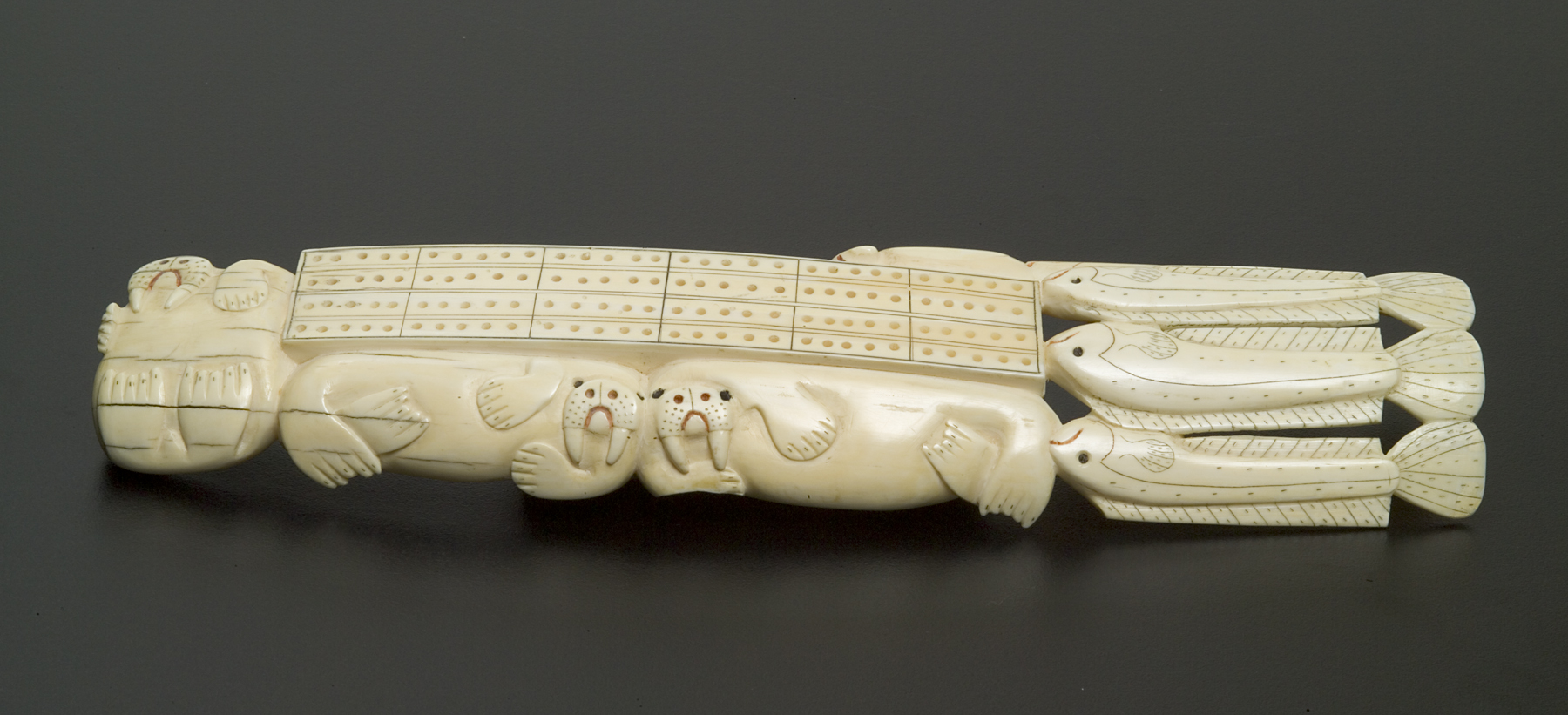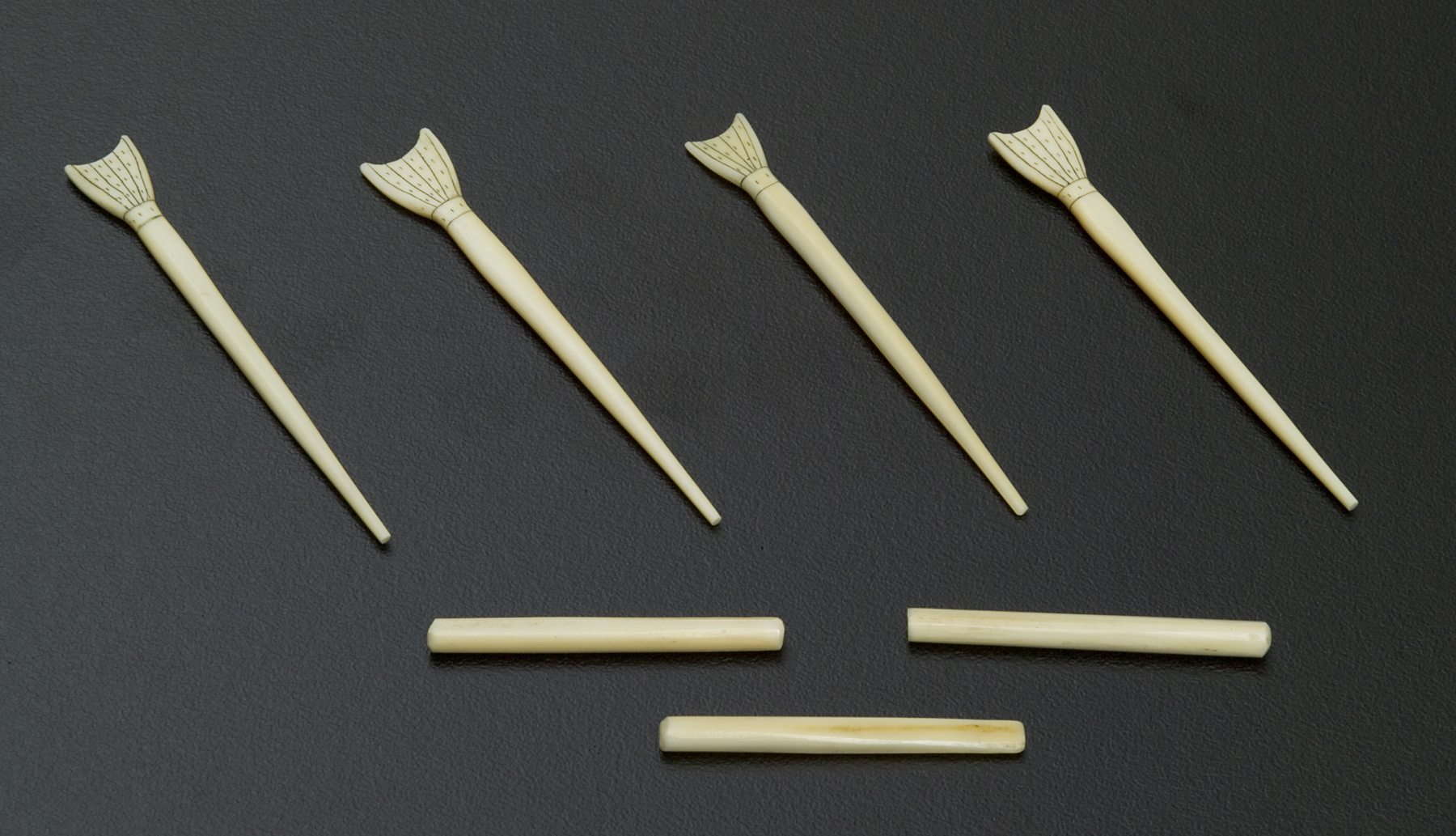cribbage board and game pieces, unrecorded Native Alaskan artist
Artwork Overview
unrecorded Native Alaskan artist, artist
cribbage board and game pieces,
early 1900s
Where object was made: District of Alaska or Alaska Territory (present-day Alaska), United States
Material/technique: walrus tusk; crayon; carving
Dimensions:
Object Length/Width/Depth (Length x Width x Depth): 29 x 6.5 x 3 cm
Object Length/Width/Depth (Length x Width x Depth): 2 9/16 x 11 7/16 x 1 3/16 in
Object Length/Width/Depth (Length x Width x Depth): 29 x 6.5 x 3 cm
Object Length/Width/Depth (Length x Width x Depth): 2 9/16 x 11 7/16 x 1 3/16 in
Credit line: Gift of George W. Traw
Accession number: 2007.0585.a-h
Not on display
If you wish to reproduce this image, please submit an image request




